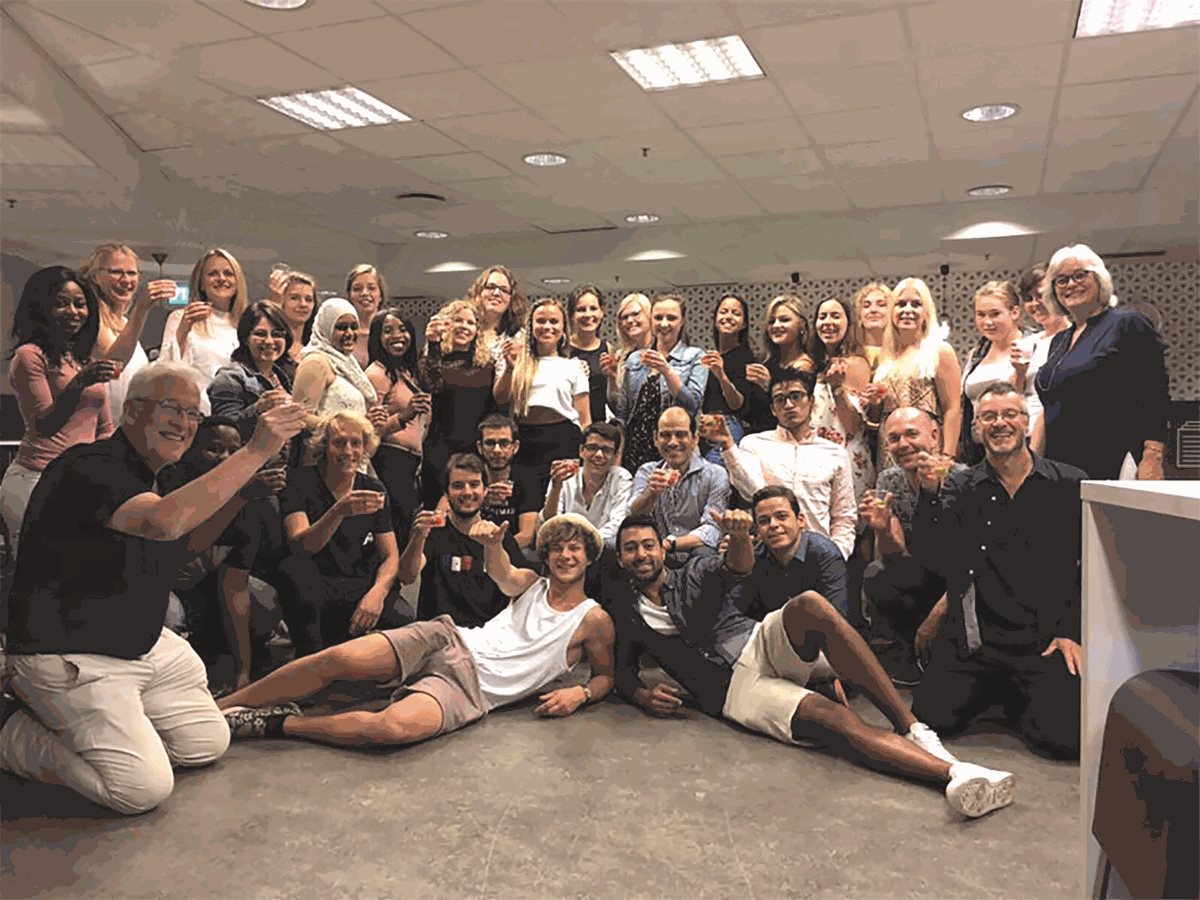Author: Professor Peter Hogg, University of Salford
This year OPTIMAX, a three week residential summer school, was hosted by Oslo and Akershus University College of Applied Sciences, Norway, during July and August. This was the 5th rendition of OPTIMAX and to date 189 students and 65 tutors from 12 countries have participated in it.
The purpose of OPTIMAX is to give radiography students a chance to participate in multinational team-based research. This is consistent with providing a near to real life experience, because quality research is often conducted in multinational teams.
Each OPTIMAX team comprises students and tutors and they work together on an equal basis; tutor-student contact is extremely high and tutors spend around 40 hours per week working within their research team.
This has significant benefit to the student learning experience as they receive constant feedback and support throughout the entire research process. OPTIMAX commences with the development of effective research teams; it then progresses rapidly to doing research about medical imaging.
The latter includes formulating and testing methods, gathering and analysing data and finally producing three outputs (draft journal papers, physical conference posters and also a PowerPoint presentation which is delivered on the final day in a formal conference).
Beyond the conference a book is published in which the research articles become chapters; the abstracts are always submitted to the European Congress of Radiology and normally they are accepted for presentation.
All student participants become authors, which is an important first step in establishing a professional CV. So far 3 books and 14 journal papers have been published and also 29 conference presentations have been delivered. Another book and 4 conference presentations are planned to arise from this year’s summer school.
Participant countries this year included Norway, Switzerland, Netherlands, Brazil, South Africa, Portugal, Ireland and the UK (University of Salford).
As always students gained immense benefit from the experience, not simply in terms of the research skills and knowledge they acquired, but also through learning about other cultures.
There is always a high emphasis on learning about the host country and this is achieved through formal and informal activities.
These included cultural trips on Saturdays; whilst informal activities included student-led social events organised in the evenings. Each research team is multicultural comprising 7 or 8 nationalities, and we have found that simply working in such a team allows for the development of intercultural awareness and understanding.
OPTIMAX is an intense target-driven experience. Each week day runs from 9-5 and often the students and tutors need to do additional work in the evenings and at the weekends.
Production of the three outputs is essential as failure to do so would result in a fail; all students are awarded European Credit Transfer Scheme credits and a certificate but these can only be achieved if the three outputs are completed and reach the pass standard.
Not surprisingly OPTIMAX is a tiring experience, but the approach is fully consistent with how researchers work to achieve their goals within strict deadlines. Nevertheless, it is a very rewarding experience.
OPTIMAX 2018 will be held in University College Dublin and planning will commence in September 2017.
